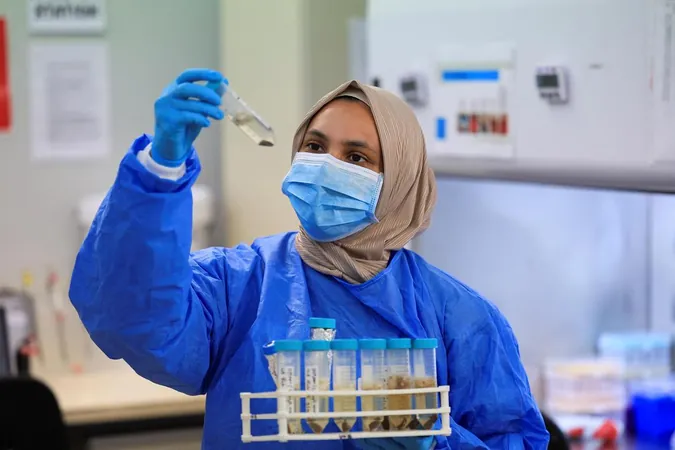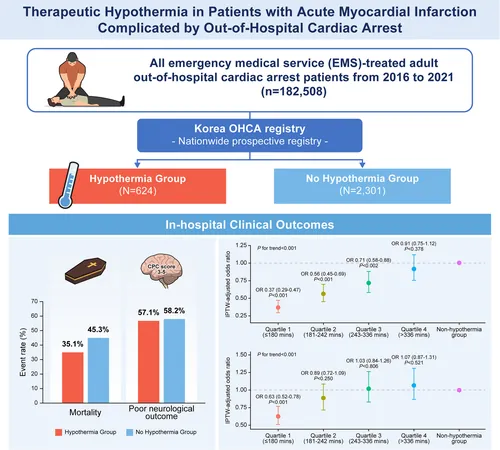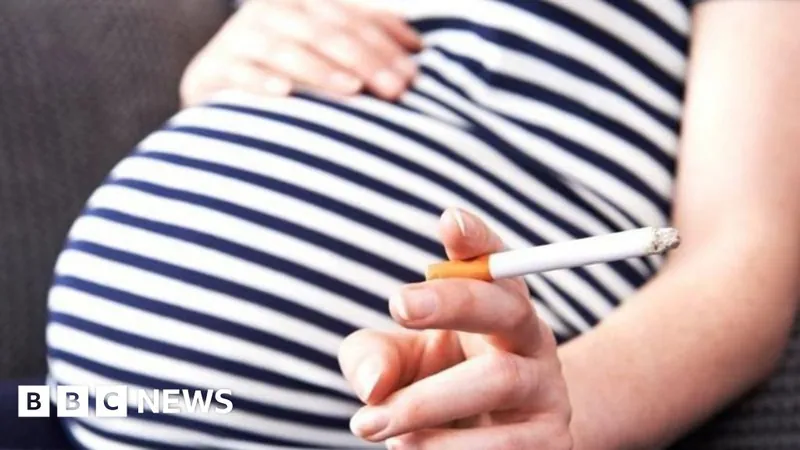
Decades of Progress in HIV Vaccine Research Threatened by US Funding Withdrawals
2025-03-28
Author: John Tan
After countless attempts spanning over three decades, the scientific community was finally brimming with optimism regarding the development of a new generation of human immunodeficiency virus (HIV) vaccines. Such advancements hold the potential to alter the trajectory of a pandemic that has tragically led to the deaths of over 42 million people since 1981. However, this hope faces an unsettling setback as the United States prepares to withdraw critical funding.
A recently leaked document detailing the future of more than 6,200 USAID programs has revealed that two prominent HIV vaccine initiatives are among 5,341 projects targeted for termination. This significant funding cut is part of an overarching plan by the Trump administration to eliminate almost $28 billion in support for global health initiatives, including crucial programs such as Gavi, the vaccine alliance renowned for immunizing millions of children against lethal diseases like measles and malaria.
Mitchell Warren, the executive director of Avac, a New York-based organization that focuses on HIV prevention research, expressed his deep concerns: "The speed, scale, and inhumanity of this administration's approach to dismantling health programs is staggering. The targeted disruption of HIV vaccine development is particularly perverse—it’s undoing decades of progress."
The most substantial HIV vaccine initiative facing budget cuts is the International AIDS Vaccine Initiative (IAVI), which had been promised over $319 million in US funding since 2016. While about $238 million has already been disbursed, IAVI anticipated receiving an additional $22 million by mid-2026. The situation became dire when a stop-work order issued in February prompted the organization to halt operations and lay off employees.
Furthermore, the South African Medical Research Council, which was awarded $45 million to conduct HIV vaccine trials worldwide, is also feeling the repercussions. Only around $9 million of this funding will eventually be available, forcing researchers to consider scaling down their studies to primarily include South Africa, hoping to attract more funding.
Amid the disheartening news, the urgent need for alternative funding sources becomes apparent. Researchers are now looking to the National Institutes of Health (NIH) for assistance in prioritizing HIV vaccine development, although uncertainty remains about whether the NIH will be shielded from the looming federal budget cuts.
In a broader context, the Department of Health and Human Services (HHS), led by Secretary Robert F. Kennedy Jr., announced plans to cut 10,000 jobs and reduce the agency's budget by $1.8 billion. These cuts align with the administration's goal to streamline the federal workforce and focus resources on "reversing the chronic disease epidemic."
Warren highlights the implications of these cuts, stating, "These programs don’t have on/off switches. The science, infrastructure, and community relationships built over the last two decades are being erased in just weeks." Experts estimate that hundreds of millions of dollars are still necessary to develop an effective HIV vaccine—a daunting challenge that likely cannot be met by a single donor.
Mark Feinberg, president and CEO of IAVI, previously remarked, "For the first time, based on work that’s emerged over the past few years, we know what the goal is and have a clear path to achieve it. We really need an HIV vaccine if we’re going to end this epidemic.”
In response to this wave of funding cuts, the activist group ACT UP has planned a protest march in New York City, aiming to bring attention to the millions of dollars in halted funding for lifesaving medications and essential global health programs. Among the targets of this protest are prominent figures like US President Donald Trump, Secretary Kennedy, and billionaire Elon Musk, who is overseeing the federal cost-cutting initiative.
The stakes have never been higher for the future of HIV vaccine research—a domain that holds the promise of saving countless lives if only the necessary resources can be secured.






 Brasil (PT)
Brasil (PT)
 Canada (EN)
Canada (EN)
 Chile (ES)
Chile (ES)
 Česko (CS)
Česko (CS)
 대한민국 (KO)
대한민국 (KO)
 España (ES)
España (ES)
 France (FR)
France (FR)
 Hong Kong (EN)
Hong Kong (EN)
 Italia (IT)
Italia (IT)
 日本 (JA)
日本 (JA)
 Magyarország (HU)
Magyarország (HU)
 Norge (NO)
Norge (NO)
 Polska (PL)
Polska (PL)
 Schweiz (DE)
Schweiz (DE)
 Singapore (EN)
Singapore (EN)
 Sverige (SV)
Sverige (SV)
 Suomi (FI)
Suomi (FI)
 Türkiye (TR)
Türkiye (TR)
 الإمارات العربية المتحدة (AR)
الإمارات العربية المتحدة (AR)